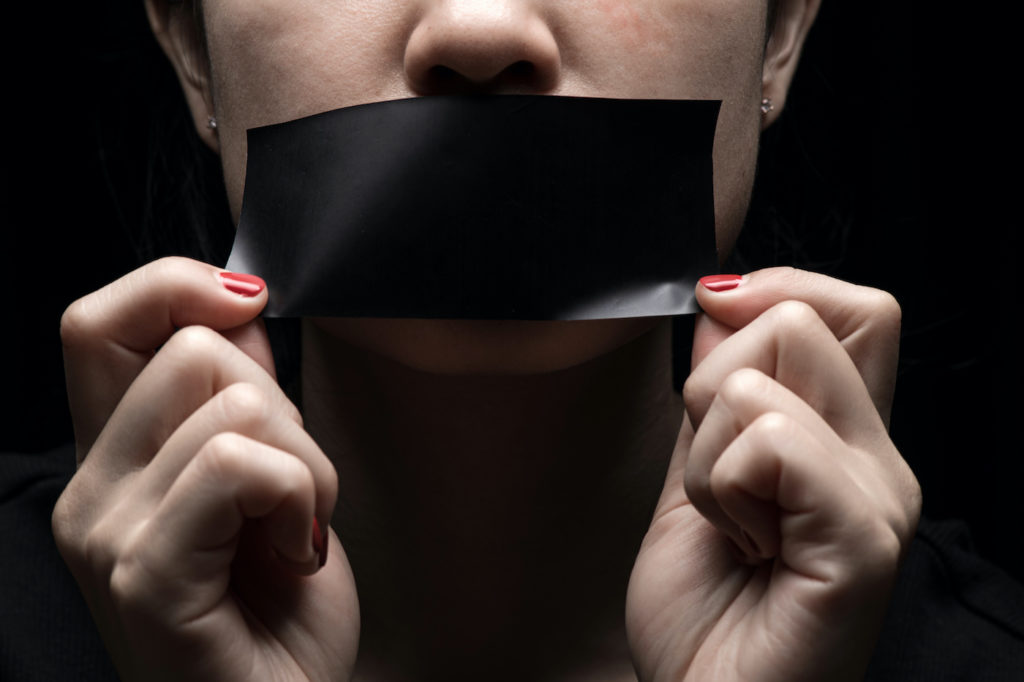My shelves are groaning under the weight of recent books that consider free speech and such related matters as hate speech, academic freedom, the interpretation of the First Amendment, and cancel culture. From Nadine Strossen’s Hate: Why We Should Resist It with Free Speech, Not Censorship and Eric Heinze’s forthcoming The Most Human Right: Why Free Speech Is Everything to Brian Leiter’s “The Case against Free Speech” and Anthony Leaker’s Against Free Speech, the war over free speech among academics and political thinkers across the ideological spectrum shows that there is both a huge problem and huge interest in this problem.
You can tell where Andrew Doyle stands from his title: Free Speech and Why It Matters. This brief book, published in the United Kingdom in 2021 and released in the United States in February 2022, consists of eighteen short chapters for a total of not quite one hundred pages, plus endnotes. It won’t cause anyone’s shelf to buckle. But it is a splendid contribution: a beautifully written work that can be read in an afternoon, even by a slow reader, and deserves to have an outsized impact. If you are looking for a book that packs a punch to give to your favorite Gen Z-er who is about to graduate from high school or college, this is a winner.
We are in big trouble, after all, if the next generation does not understand that self-respect involves standing up for what one believes—even (or, indeed, especially) when it involves standing alone. As Doyle writes, “Conflict is hard. The appeal of ideologies is that they absolve us of the obligation to think for ourselves. Many, if not most, are willing to sacrifice their freedom of speech and independent thought for the consolations of certitude. It is in the interests of the powerful to encourage this kind of docility and thereby beget a flock of industrious sheep.”
The two most remarkable things about Doyle’s book are the near-absence of snark and the author’s regular expressions of empathy for those with whom he vehemently disagrees. The attempt at balance is especially admirable in someone who holds strong views. As for snark, Doyle is better known as his alter ego, Titania McGrath, author of the 2019 book Woke: A Guide to Social Justice and infamous Twitter pundit whose bio reads “Activist. Healer. Radical intersectionalist poet. Nonwhite. Exosexual. Pronouns: variable. Selfless and brave. Buy my books.”
Start your day with Public Discourse
Sign up and get our daily essays sent straight to your inbox.We are in big trouble, after all, if the next generation does not understand that self-respect involves standing up for what one believes—even (or, indeed, especially) when it involves standing alone.
Well-Intentioned Authoritarianism?
When I picked up Free Speech and Why It Matters, I anticipated—and, I admit, looked forward to—a series of hilarious potshots against the Woke. They are not to be found. Titania McGrath and Andrew Doyle are both masters of the bon mot, but Doyle’s snappy sentences are constructive, not clickbait.
Of those who espouse the “new identity-based conceptualisation of ‘social justice,’” Doyle writes, “We are left facing that confusing and rare phenomenon: the well-intentioned authoritarian.” Of the absence of humor in schools and the workplace today: “When people are expected to behave like robots, who will never misspeak or inadvertently cause offence, the business of living is reduced to drudgery.” Further examples: “To feel upset is not an aberration; it is a sign that we are alive”; “It is perfectly legitimate to appreciate a work of art while detesting its underlying moral intention”; “An artist who kowtows to ideological expectations can barely be said to be an artist at all” (and the same is true for a scholar, as Doyle goes on to say); and “There is a world of difference between barbed words and barbed wire.”
Doyle, who makes his living in part as a comedian and satirist, was born in Northern Ireland and holds degrees from universities in Wales and England, including a doctorate in Renaissance literature from Oxford. It is unsurprising that someone with Doyle’s background would take his epigraph from Milton’s polemic against censorship, Areopagitica: “Give me the liberty to know, to utter, and to argue freely according to conscience, above all liberties.”
To illustrate the threat to liberty and free speech, Doyle opens his book with an alarming statistic: “Between 2014 and 2019, almost 120,000 ‘non-crime hate incidents’ were recorded by police forces in England and Wales.” What on earth, you may well ask, is a non-crime hate incident? As his gambit, Doyle briefly tells the story of Harry Miller, who “was contacted by Humberside Police following a complaint by an offended party about a poem that he had shared on social media which was deemed to be transphobic.”
This is what happened: “During the course of the conversation, the officer explained that, although not illegal, this nevertheless qualified as a ‘non-crime hate incident.’ Why, Miller asked, was the unnamed complainant being describes as a ‘victim’ if no crime had been committed? More to the point, why was he being investigated at all? To which came the ominous response: ‘We need to check your thinking.’”
From here it is off to the races: John Stuart Mill’s On Liberty; Mario Savio and the era when the Left was passionate about free speech; the outrageous treatment of Erika and Nicholas Christakis; the unforgivable transgression of J. K. Rowling; etc. I was especially impressed with Doyle’s account of the overworked but under-interpreted scenario of shouting “Fire!” in a crowded theater and with his insistence that “it is clear that the entire notion of ‘hate speech’ has no place in the statute books of a liberal democracy.”
Free Speech at Home and Abroad
Given Doyle’s own background, there is a certain emphasis in his book on the United Kingdom, though Doyle has a good deal to say about the United States as well—and, in a powerful chapter titled “Comedy and Satire,” about the atrocities against Charlie Hebdo in Paris. That said, a weakness—but this is a weakness of many books of its kind—is that there is no discussion of free speech outside Western Europe and North America.
This leads Doyle to make the bald claim that “hosting a debate about whether or not slavery is morally acceptable” is not equivalent to contemporary disputes over “the validity of gay marriage” since “[n]obody would think to hold such a debate now, because the matter was resolved in the nineteenth century.” There are perhaps forty million slaves in the world today and only thirty-one countries that have legalized same-sex marriage. If someone produces a full-scale study of free speech across the globe, I will be the first to buy it. For now, see freespeechdebate.com and Timothy Garton Ash’s Free Speech: Ten Principles for a Connected World, as well as Jacob Mchangama’s new Free Speech: A History from Socrates to Social Media.
There are other places where I wish Doyle had said just a bit more, but this is not to deny the power of his brevity. For example, commenting on the difference between tolerance of and respect for different points of view, Doyle cites the hash the University of Cambridge made in initially rescinding the offer of a visiting fellowship to the Canadian psychologist Jordan Peterson. Strangely, though, he does not cite the magnificent and in the end massively successful campaign that philosopher Arif Ahmed and colleagues waged at Cambridge to stop the Vice-Chancellor—who, perhaps not coincidentally, will be stepping down later this year—from demanding that academics treat other academics with respect (i.e., deference) rather than with “the liberal ideal” of tolerance.
It does not seem a good use of space for me to provide page-by-page praise for Doyle’s observations in favor of the position that “free speech for all is the best defence against totalitarianism.” Rather, let me suggest some points on which he and I may disagree. For one thing, Doyle suggests that “those who claim that we are experiencing a ‘free speech crisis’ may be guilty of hyperbole” and states that he “do[es] not believe we are as yet experiencing a full-blown crisis.” I respectfully dissent: while we do not yet have gulags, what Rod Dreher calls “soft totalitarianism” is destroying lives every day.
In my opinion, Doyle sometimes goes too far in extending charity to those whom Jonathan Rauch calls “kindly inquisitors” in his prescient 1993 book. Doyle writes, “If we agree on nothing else, we can at least accept that our goals are similar even if our views on how best to achieve them are not.” But, alas, recent years make me doubt that we do have “a substantial bedrock of shared values.” As far as I can tell, the silencing of alternative views by so-called progressives—who are often not kindly at all—is typically a power grab.
There are of course also right-wingers for whom what matters most is power. But for what it is worth, my experience is that progressives who smear good people with false and abusive epithets such as “fascist” and “transphobe” care far more about controlling others than about themselves living out coherent philosophies of justice.
Recent years make me doubt that we do have “a substantial bedrock of shared values.” As far as I can tell, the silencing of alternative views by so-called progressives—who are often not kindly at all—is typically a power grab.
The New Illiberalism
We live in a dangerous world when legions of supposedly enlightened people—these days especially on the Left, but also on the Right—decry free speech, when freedom is said to be white, and when speech is considered literal violence—as, in certain cases, is also its absence: silence.
This is not to say that free speech is necessarily an absolute right, or that there might not be any historical connection at all between whiteness and the Franco-American conception of freedom, or that there is never a link between fighting words and mayhem (obviously there is, and “Incitement” is the book’s most intellectually demanding chapter, as well as the longest). But I am with Doyle: “[f]ree speech is the marrow of democracy. Without it, no other liberties exist.” If you read the book, or even if you don’t, I hope you will be with Doyle, too.
Three-quarters of a century ago, George Orwell, whom Doyle regularly invokes, wrote confidently, “Extremely few English people are afraid to utter their political opinions in public, and there are not even very many who want to silence the opinions of others.” How different our world is now. And where are we going? Are we heading to the dystopia of Nineteen Eighty-Four? Or to the brave new world of Aldous Huxley? I quote in full Doyle’s stunning ending:
It may be that in another thirty years we will have resigned ourselves to self-censorship and conformity to the status quo. Perhaps all art will be a form of ideological reinforcement, with eccentricity and free-thinking seen as quirks of a half-forgotten time. Perhaps we will learn to live under the continual supervision of the state, tempering our every utterance in accordance with the accepted script. Such a scenario seems inconceivable to those who have not learned the lessons of the past. For the rest of us, it is surely worth stemming the momentum of this new illiberalism. While we should celebrate progress, we need to be able to recognise the forces of regression that usurp its name. Even if we fail, at least we can say we tried.
We must indeed try.













